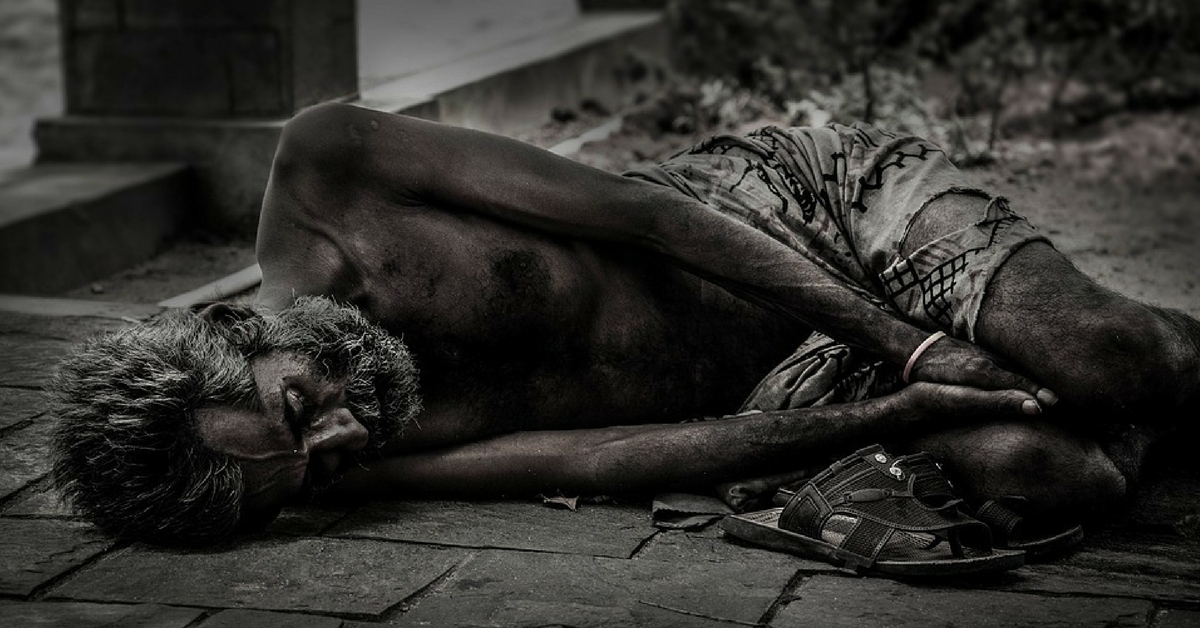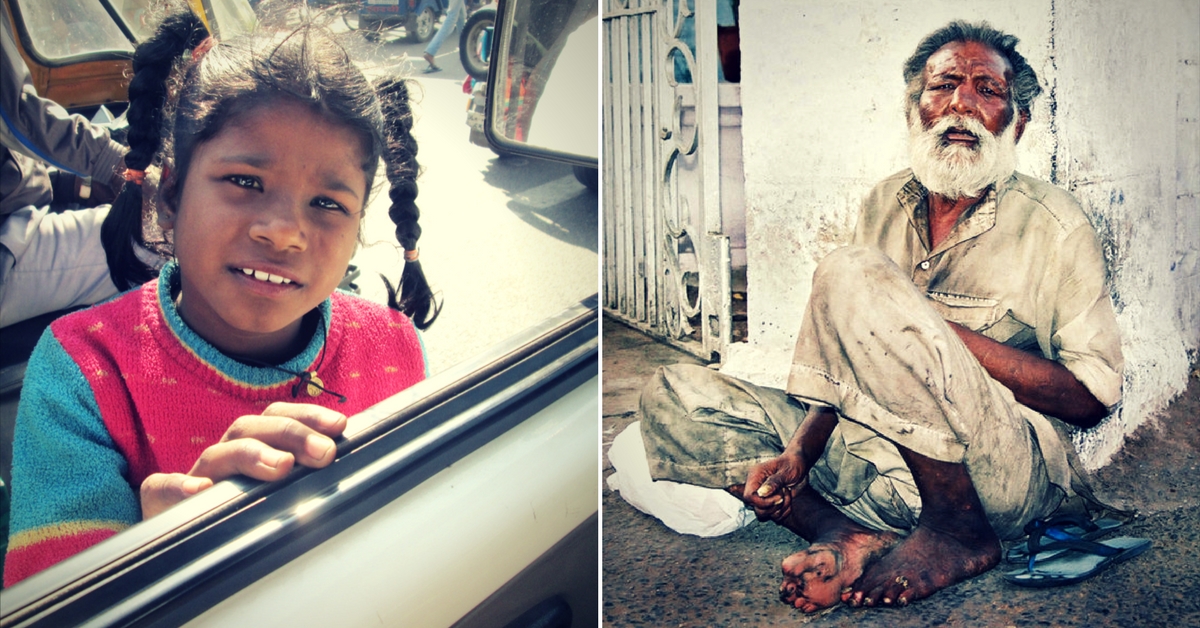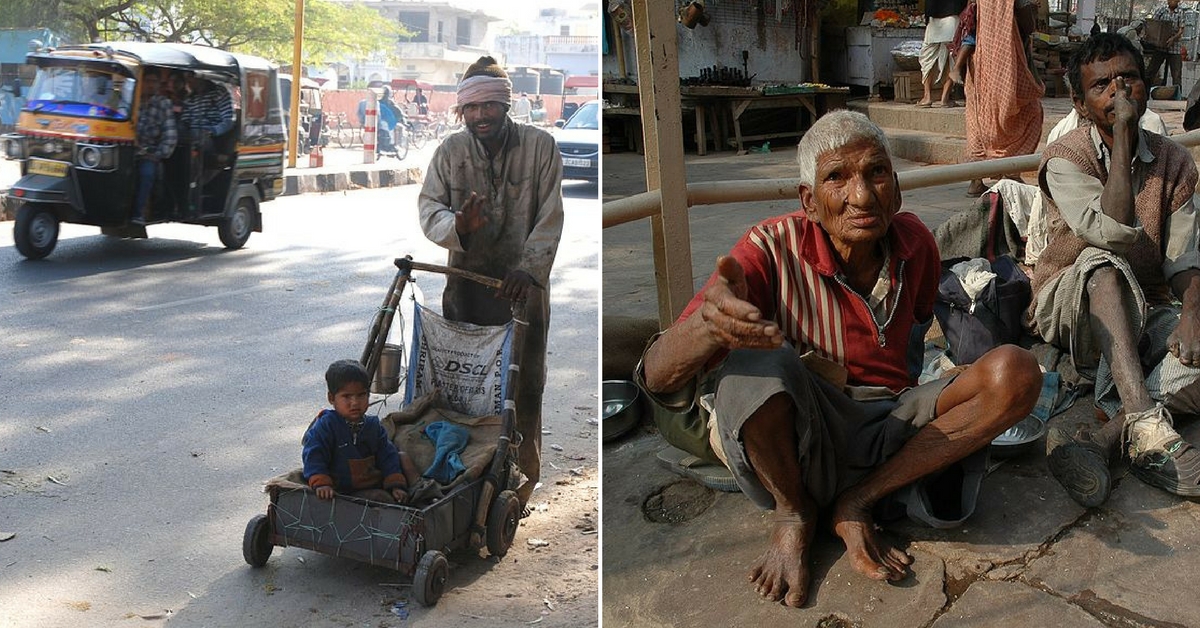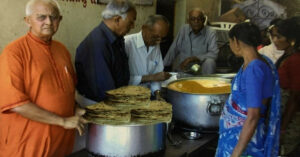This Kerala Town Aims to Become Hunger-Free and Beggar-Free in a Month!
Hunger and unemployment, among other factors often causes people to take to the streets.

Beggars are a common sight in India and are seen in railway stations, metro stations, tourist spots, and in areas where there is a regular crowd.
Recently, the government announced a scheme to rehabilitate beggars and provide skill development training to them.

In a written reply to the Rajya Sabha, Vijay Sampla, the Minister of State for Social Justice and Empowerment, said that meetings were being held with authorities from Central and State Governments, NGOs, institutes and experts to discuss the issues related to begging.
Taking a cue from the efforts of the government, Alappuzha, a city in the state of Kerala, is all set to begin a drive to make it beggar free, with the support of the police and the district administration.
Speaking to The Hindu, Thomas Joseph, the Alappuzha Municipal Chairman, said that the administration wanted to declare Alappuzha as a beggar-free town in a month’s time.
Tackling the root of the problem, the minister said the plan was to make the region hunger-free and beggar-free, with the former already in the implementation stage. The municipal council has given an in-principle nod, to ban begging in the locality, and a pending high-level meeting, to discuss and get the ball rolling is in the works.
Beggars from various parts of Alappuzha will be rehabilitated and looked after by the civic body. Those from other states will be sent back to their respective homes.

The first task, is to identify the beggars, after which appropriate steps for rehabilitation will be taken. Food, shelter, and basic needs will be provided to those beggars hailing from the district.
The ‘hunger-free Kerala’ project, is being implemented on a pilot basis, aiming to provide quality food to the needy, free of cost and at least twice a day. The scheme will cover around 500 people in Alappuzha, giving them food, with the help of voluntary organisations, youth organisations, Kudumbasree and like-minded people. Old and infirm people will have food delivered to their homes.
The authorities are acting based on a list, of around 200 beneficiaries, with more to be added based on a survey to identify them.
The State Government has pledged Rs 40.89 lakh towards this cause, with the fund put into use for constructing a permanent facility to provide food at very nominal rates.
At present, 20 states and two Union Territories have either enacted their own anti-beggary laws or adopted those enacted by other states. These laws are mostly based on the Bombay Prevention of Begging Act, 1959, which criminalises begging, and any person found involved in it can be arrested without a warrant.
You may also like: Beggars Are Studying Abroad and Child Labourers Are Becoming Doctors, Thanks to One Couple!
These steps being taken by the authorities in Alappuzha could be implemented in other states as well. A well-rounded approach, which addresses hunger and unemployment, could be the first step in ensuring an improvement in the conditions of beggars.
(Edited by Gayatri Mishra)
Like this story? Or have something to share? Write to us: [email protected], or connect with us on Facebook and Twitter.
NEW: Click here to get positive news on WhatsApp!
This story made me
-
97
-
121
-
89
-
167
Tell Us More
We bring stories straight from the heart of India, to inspire millions and create a wave of impact. Our positive movement is growing bigger everyday, and we would love for you to join it.
Please contribute whatever you can, every little penny helps our team in bringing you more stories that support dreams and spread hope.



















